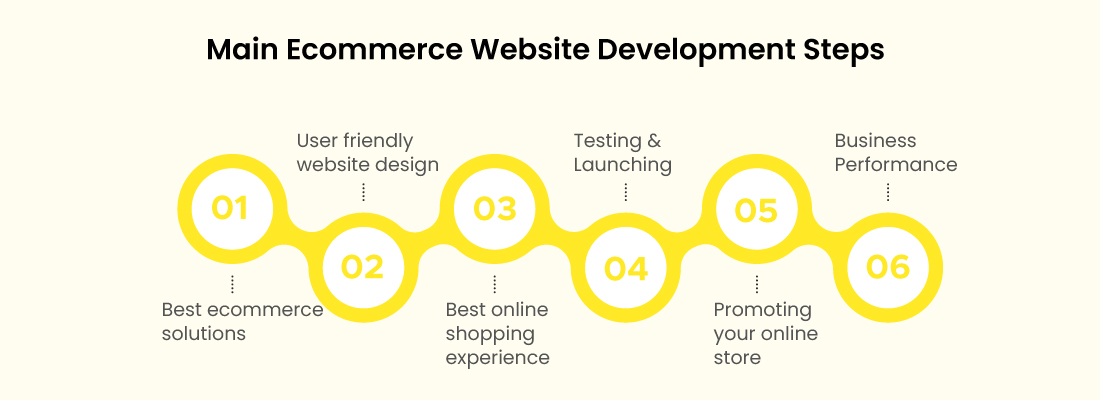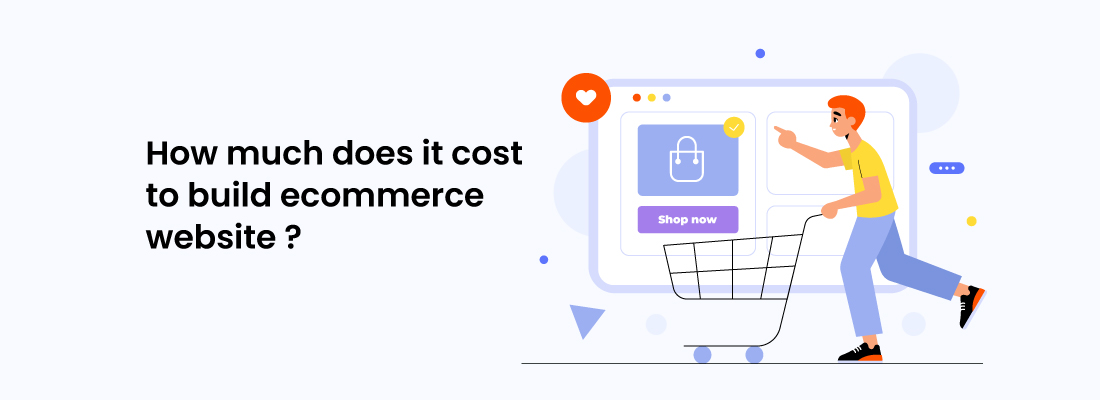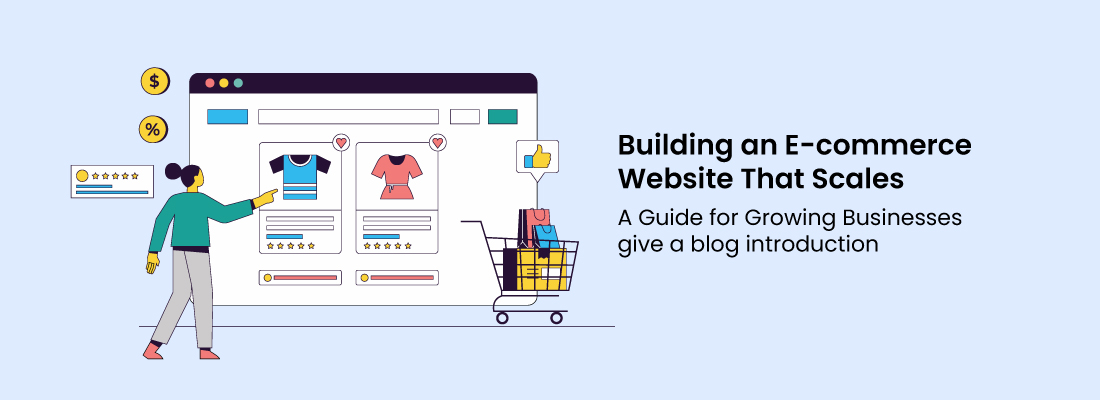Having an online presence is critical for businesses of all sizes in today’s ever-expanding digital market.
Businesses have the chance to grow sales, attract a larger audience, and strengthen their brand thanks to e-commerce platforms.
Though it might be difficult to design an e-commerce website that expands with a growing company.
This guide will give a thorough review of the essential components required for building an e-commerce website that can support growth and changing business needs in an effort to assist businesses in succeeding in this attempt.

Read Here: WHICH ECOMMERCE PLATFORM SHOULD BE USED FOR SMALL BUSINESS
Factors that are necessary for building an e-commerce website:
Get started on your e-commerce journey with ease. Let us guide you through the process of creating a seamless and profitable online store
Here are the key elements that are necessary for building an e-commerce website:
Platform Selection:
Choosing the appropriate platform for your e-commerce website is essential.
In addition to offering the functionality your company requires, it should be able to handle the volume of transactions and traffic.
The well-known e-commerce systems are BigCommerce, WooCommerce, Magento, and Shopify.
Payment Gateway Integration:
To process transactions, an e-commerce website needs a dependable and secure payment gateway.
Pick a payment processor that supports various payment methods and offers simple checkout processes.
User-Friendly Interface:
An e-commerce website’s design and navigation should be user-friendly and simple to use.
This entails having distinct product classifications, excellent product photos, and thorough product descriptions.
Mobile Responsiveness:
It’s critical to make sure your e-commerce website is responsive and mobile-friendly given that the bulk of online sales is made on mobile devices.
This includes having an intuitive navigation system, quick loading times, and a responsive design.
Product Management:
E-commerce websites must have an efficient system for managing products, including adding, editing, and deleting products, managing product categories, and managing inventory.
Shipping and Tax Calculations:
The e-commerce website must include accurate shipping and tax calculations.
This includes varying location-based tax rates, shipping options, and shipping costs.
Customer Service:
Establishing strong customer loyalty and fostering positive brand experiences require top-notch customer service.
For customers to contact you, you should have a FAQ area, live chat assistance, and a contact form available.
Marketing and SEO:
Implementing efficient marketing techniques and optimizing your e-commerce website for search engines can help increase traffic, boost sales, and broaden the appeal of your business.
This entails putting SEO best practices into reality, managing online marketing initiatives, and utilizing social media.
These are the main components that companies need to take into account when developing an e-commerce website that scales and allows for expansion.
Businesses may build a website that offers a seamless user experience, increases sales, and supports their company’s success in the cutthroat world of e-commerce by keeping these factors in mind.
Can you build an e-commerce website with python?
Yes, Python may be used to create an online store. Django, Flask, and Pyramid are just a few of the frameworks and packages that are available in Python that make it simple to create an e-commerce website.
The high-level Python web framework Django offers a wide range of pre-built functionality for creating web applications.
It features a sizable and lively community and a wide selection of third-party packages.
This makes it simple to include functions on your e-commerce website including user identification, product administration, and payment processing.
Smaller e-commerce websites can benefit from using the Python micro web framework Flask.
Creating web applications offers the bare minimum of tools and leaves the rest up to the developer.
Starting is simply because of this, but adding functionality like user authentication and payment processing could need the usage of extra libraries.
Another well-liked Python web framework, Pyramid, offers a lot of flexibility for creating web applications.
Both small and large e-commerce websites can use it, and it offers a wealth of built-in options for development.
In conclusion, it is feasible to create an e-commerce website using Python, and several frameworks and packages can help. Your website’s size and complexity, as well as your tastes and developer experience, will all play a role in which one is best for you.

Frequently asked questions
How do I choose the right platform for my e-commerce website?
Think about aspects like price, scalability, and functionality when selecting the best platform for your e-commerce website. The well-known e-commerce systems are BigCommerce, WooCommerce, Magento, and Shopify.
How do I integrate a payment gateway?
Considerations for your e-commerce website’s user-friendly interface design include the layout, navigation, and product presentation.
A design that offers a smooth user experience should be prioritized.
How do I attract traffic to my e-commerce business website?
Implementing efficient marketing tactics and optimizing your website for search engines are necessary to increase traffic to your e-commerce business.
This entails developing a precise marketing plan, launching online marketing campaigns, making use of social media, and applying SEO best practices.
Final thoughts
Online stores are difficult to start up and manage; else, we’d all own one. Despite the fact that online shopping is a significant trend that isn’t anticipated to slow down anytime soon, it’s still crucial to have a reliable e-commerce website that puts the needs of the customer first.
Customers will go to other online stores that sell similar goods if they can’t swiftly find what they’re looking for, pay for it, and receive it.
The methods are much the same whether you use an existing e-commerce system or create your web store from scratch.
What matters is that you build your business on a strong foundation, which should include your branding, merchandise, and delivery choices.























